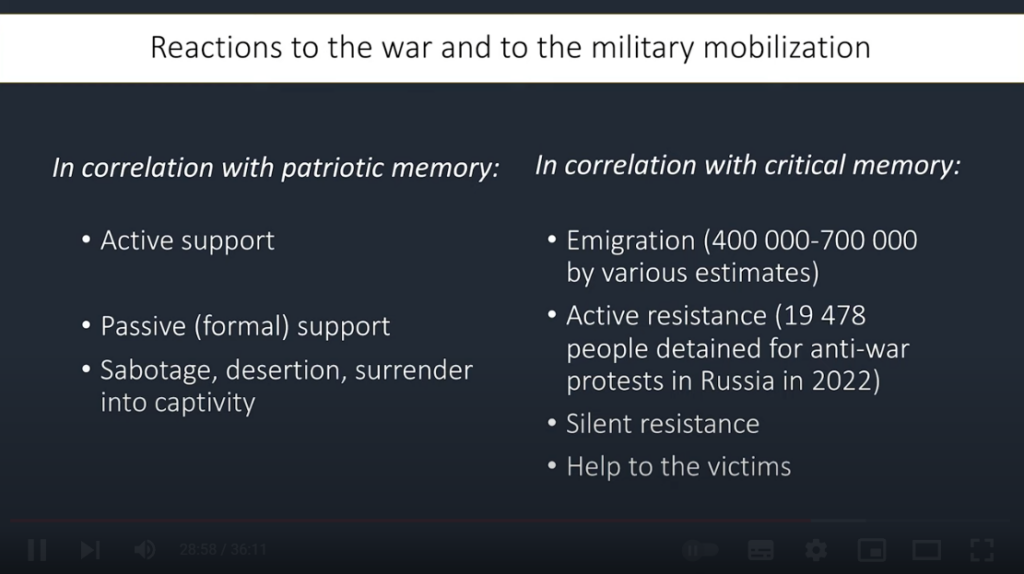Historian who truly engages with the core of reconciliation and healing of the past, by doing comparative research on how nations and cultures deal with the crimes of the past.
Interview – May 2022
You may switch on auto-translation of subtitles from Russian to English – it is a short way to the work of this researcher.
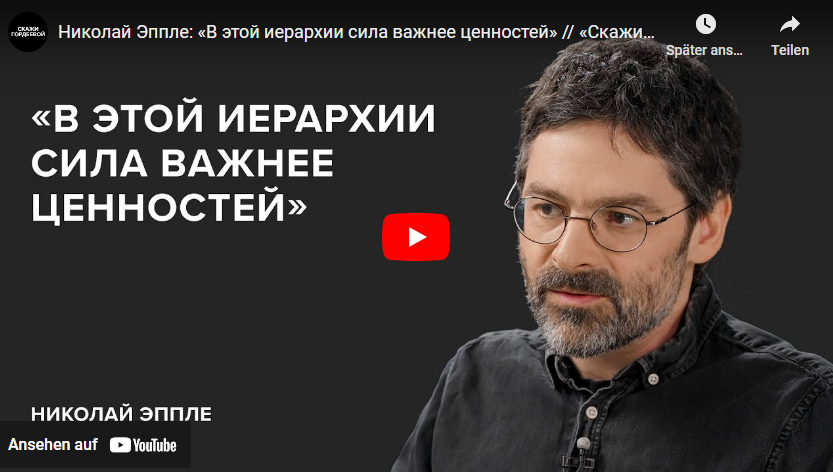
More interviews
Николай Эппле: Неудобное прошлое, Дудь о Колыме, дело Дмитриева || Шкала ценностей
11.10.2020
With Schulmann
07.11.2020
Moscow
17.05.2022
Library in Paris – Неудобное настоящее, Встреча с Николаем Эппле
4.5.2023
Infected memory
Article from 2016 – Dekoder – Original
Lecture given in the Netherlands
Slides from a lecture, summarizing two kinds of memory about the past – a “patriotic” memory vs. a “critical” memory, that he discusses in great detail in his book The Inconvenient Past: Memory of the State Crimes in Russia and Other Countries.
Find an inspiring and courageous look by him on Russian responsibility and fear in these three articles online.
The Russian state tries to monopolize how people speak about the past, especially the criminal past in the times of the Soviet Union – it is now not denied in general, as it used to be in the Soviet Union, but it is put in a balance with achievements and therefor portrayed as a perhaps understandable price. Nothing good without some bad, one might sketch this perspective.
There is no attempt or call to take responsibility, to dig deeper into the causes and conditions for the horrondeous crimes committed by Stalin and covered in silence by his followers.
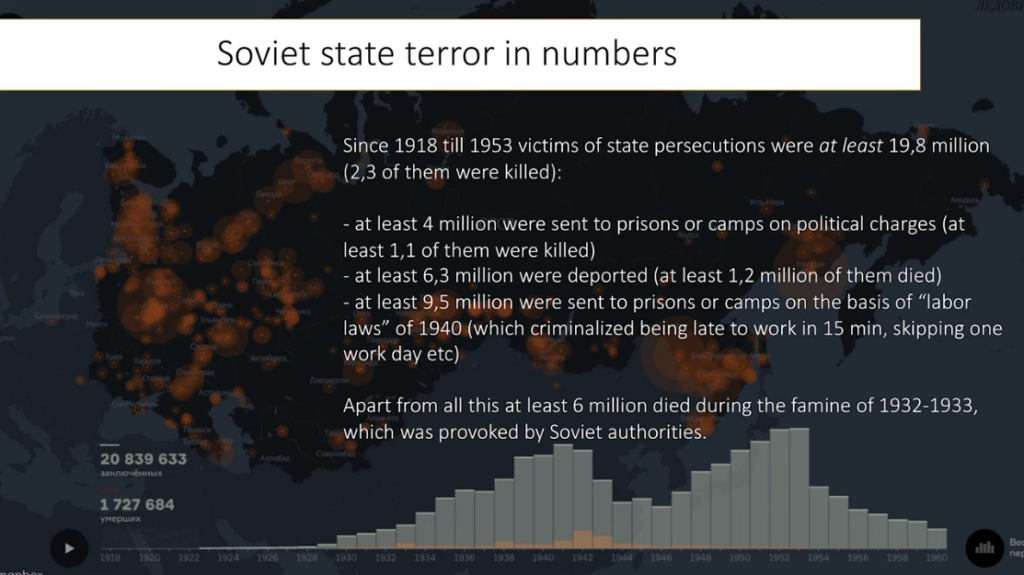
Now here is how the Russian State – Putin – the Kremlin and its mouth-pieces in Russia like to look at the memory of the past – the “Patriotic” memory.
Patriotic memory
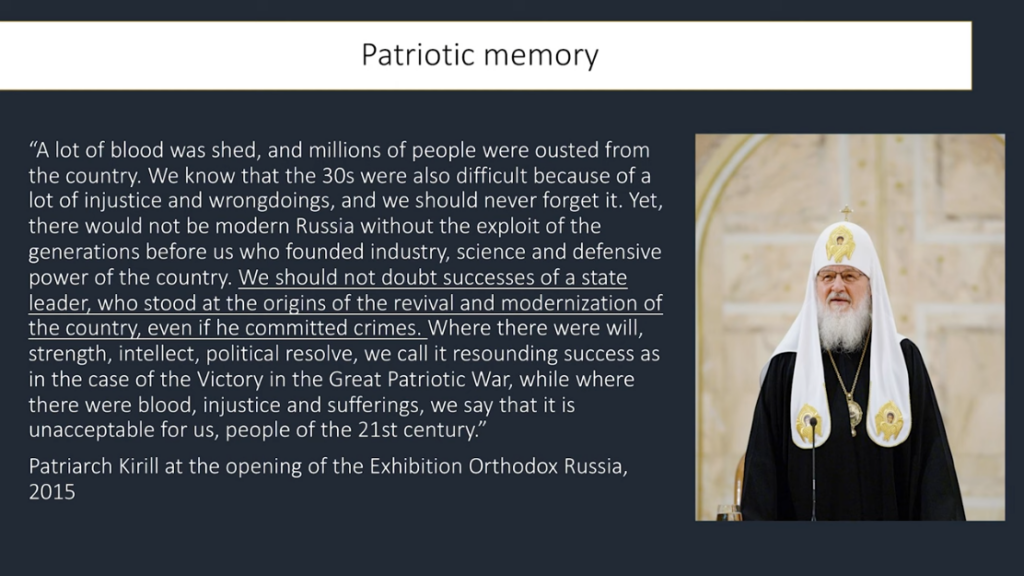
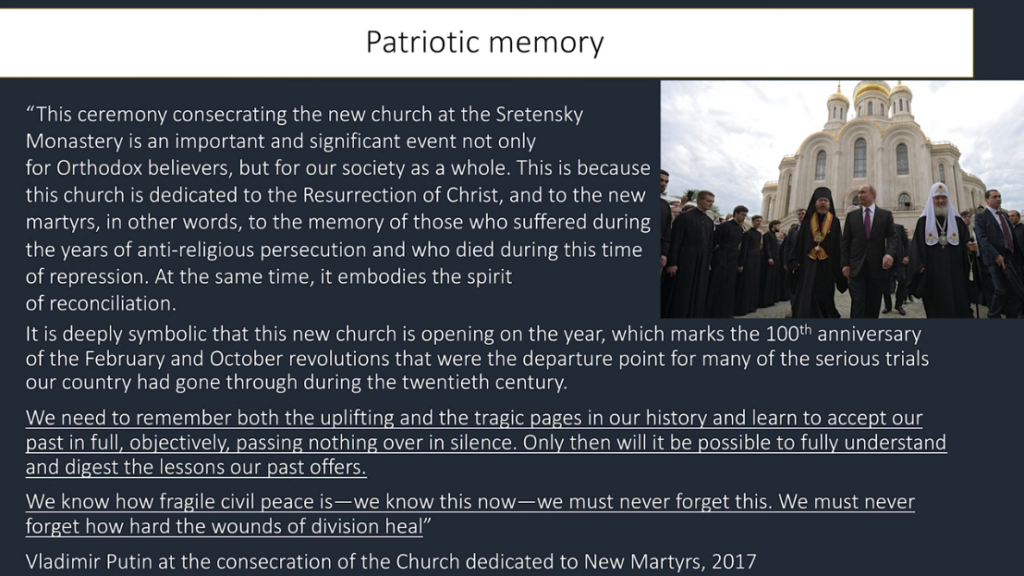
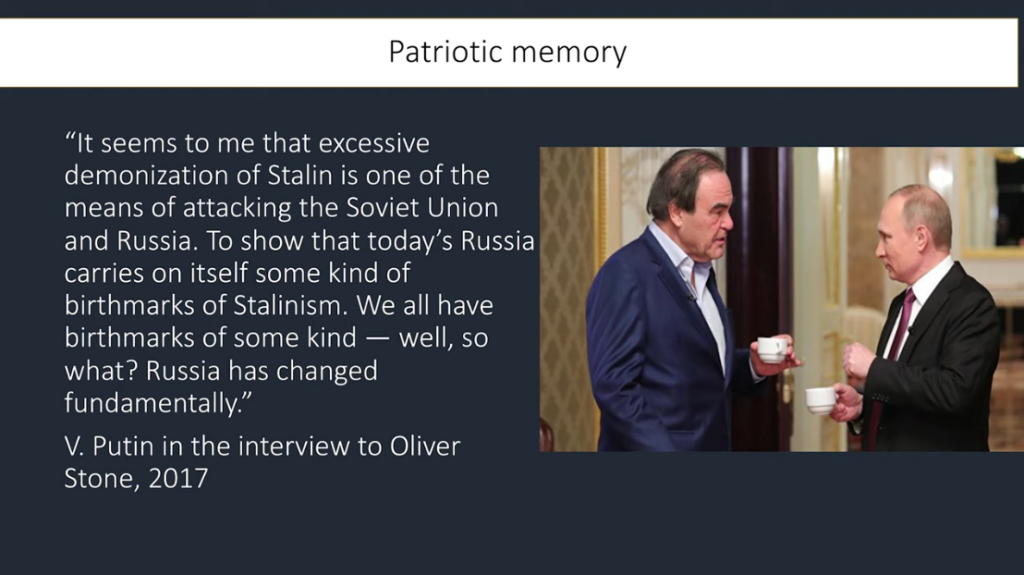
The critical memory tries to face the truth of the suffering of the State crimes. This activity was carried out not by the State, but by private or non-governmental organizations. Memorial spearheaded many of the initiatives, created a database of the victims, organized the building of memorial sites at the places where gulags had been or crimes against humanity have been presented. This is done to re-established the lost dignity of the victims and to enable society to deal with the past in a healing and learning way.
Critical memory
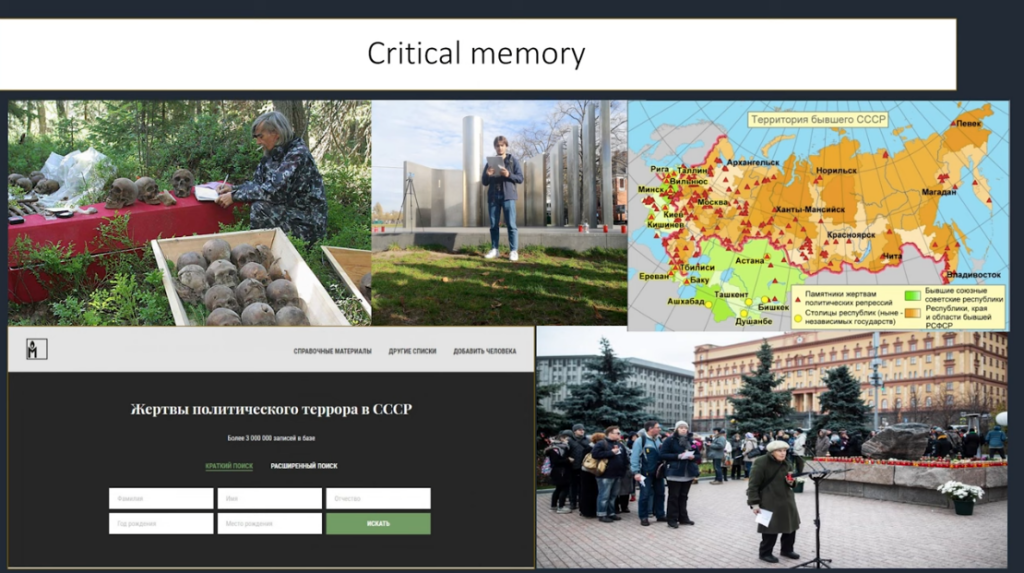
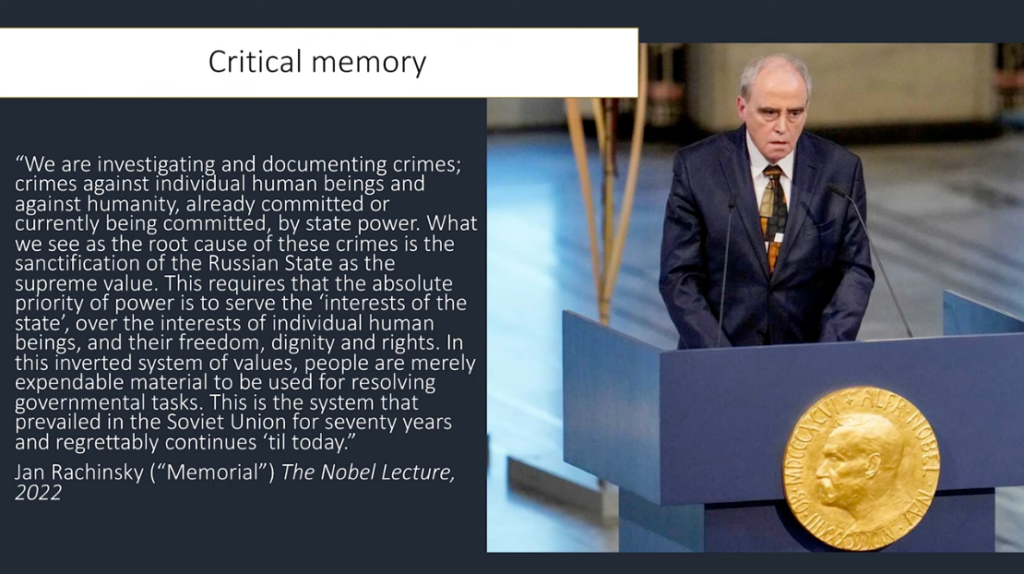
Contrasting the two types of perspective on the past
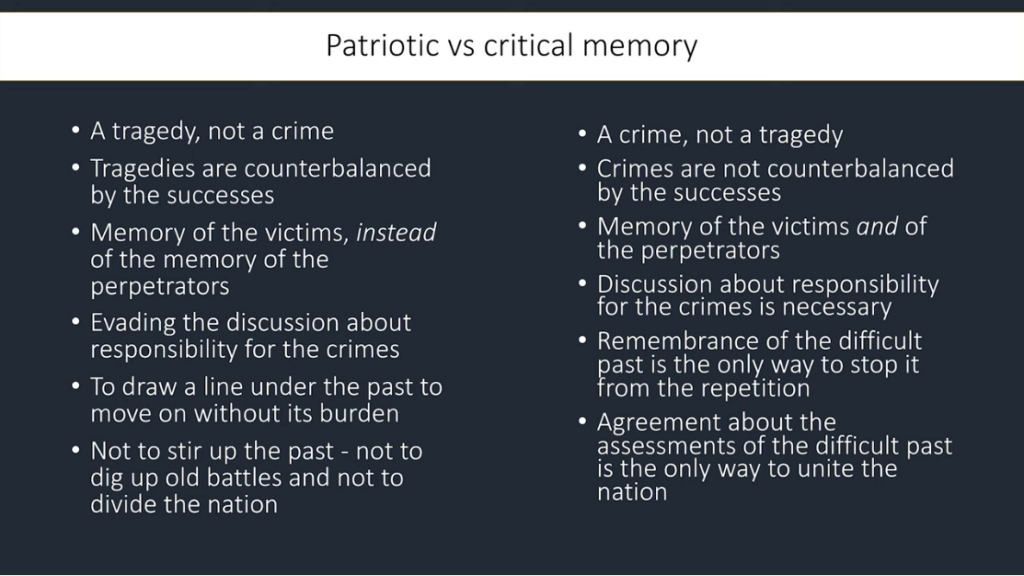
Gulag legacy
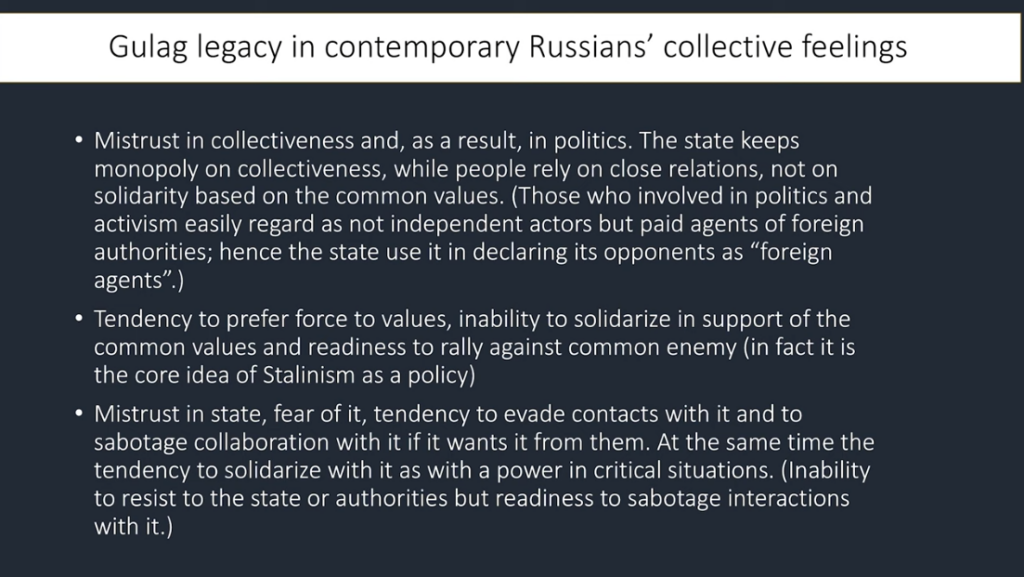
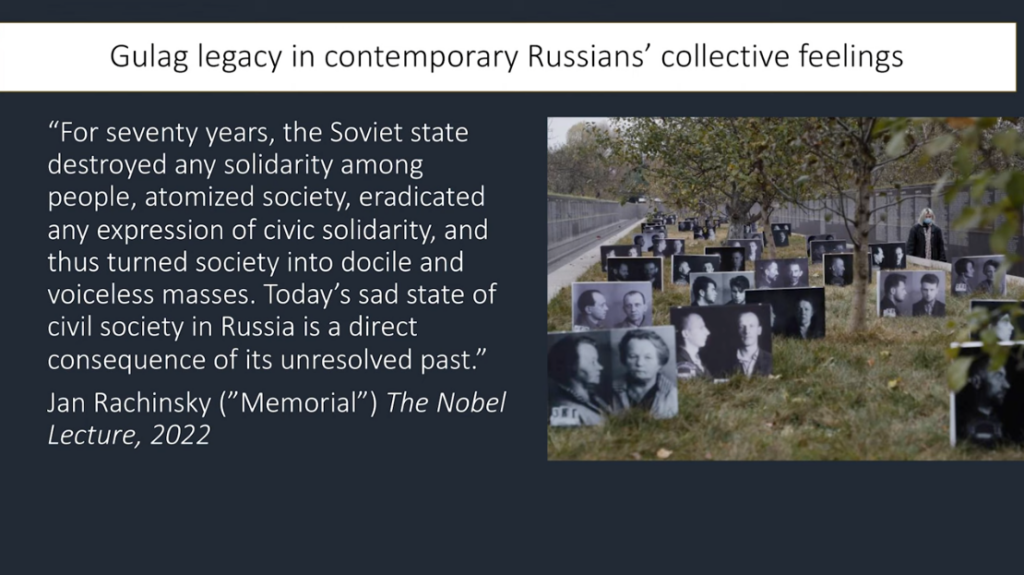
As life standard worsens, support for the state rises
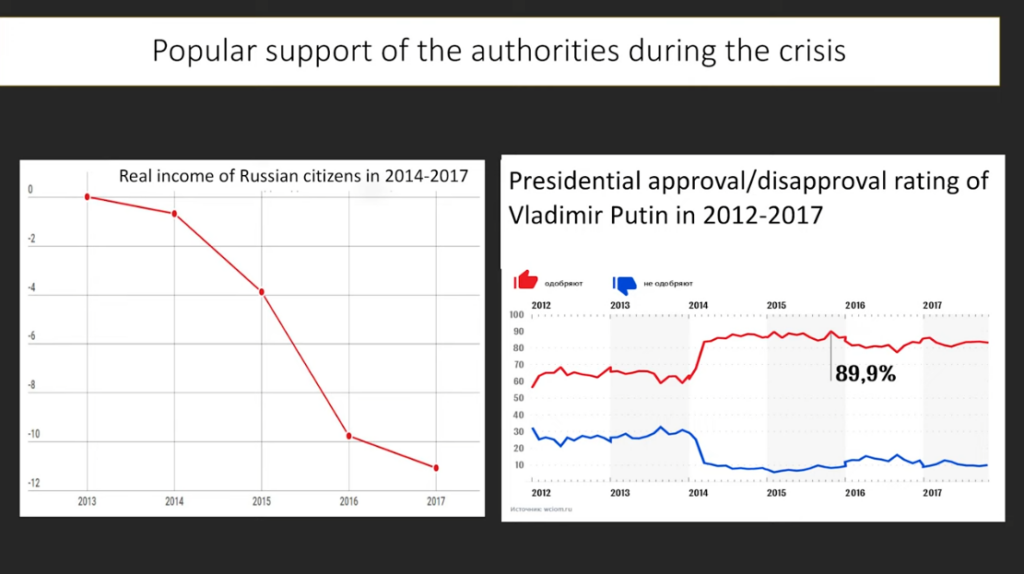
Reactions to the war according to perspective on the past
